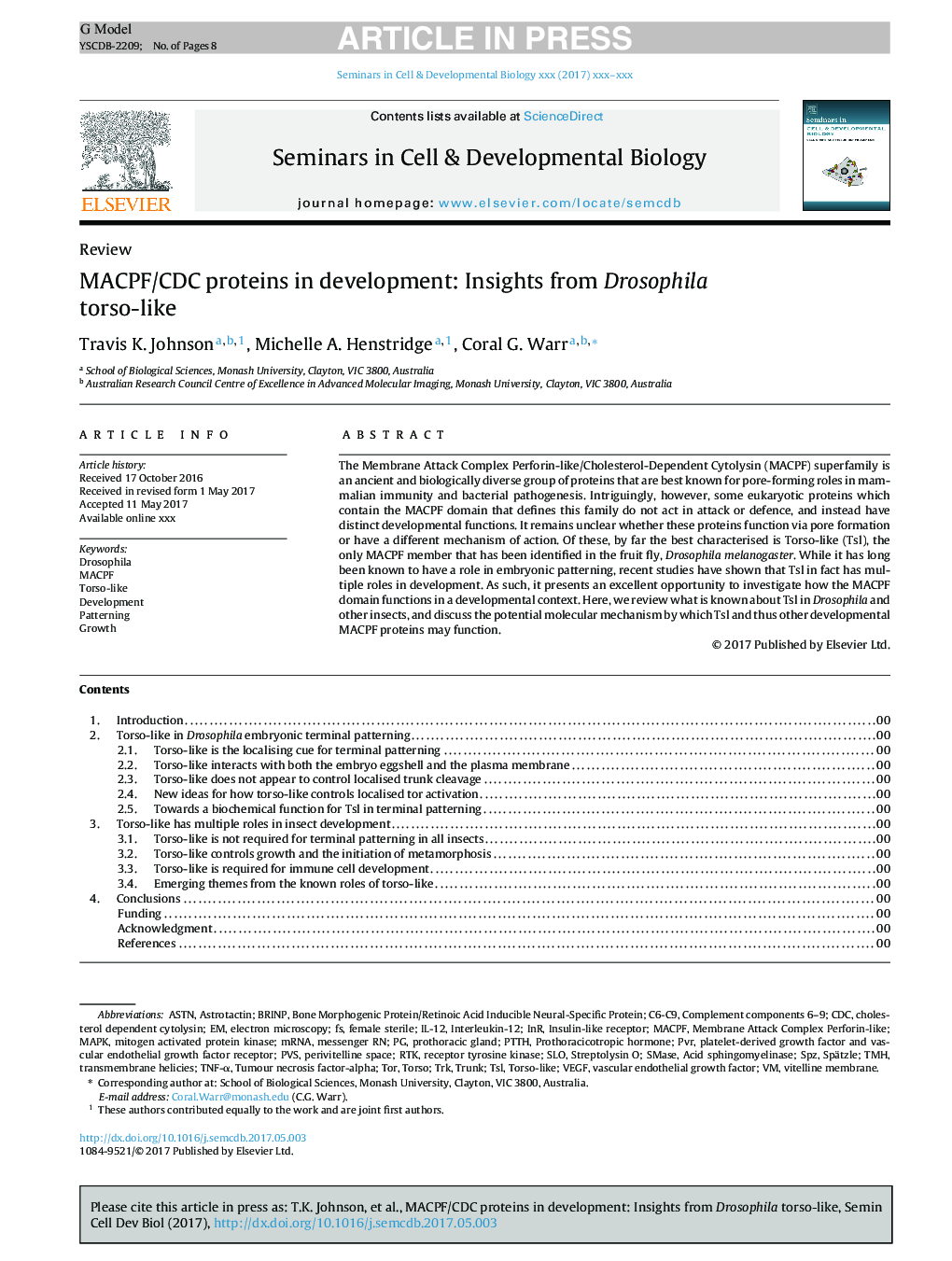| Article ID | Journal | Published Year | Pages | File Type |
|---|---|---|---|---|
| 8479971 | Seminars in Cell & Developmental Biology | 2017 | 8 Pages |
Abstract
The Membrane Attack Complex Perforin-like/Cholesterol-Dependent Cytolysin (MACPF) superfamily is an ancient and biologically diverse group of proteins that are best known for pore-forming roles in mammalian immunity and bacterial pathogenesis. Intriguingly, however, some eukaryotic proteins which contain the MACPF domain that defines this family do not act in attack or defence, and instead have distinct developmental functions. It remains unclear whether these proteins function via pore formation or have a different mechanism of action. Of these, by far the best characterised is Torso-like (Tsl), the only MACPF member that has been identified in the fruit fly, Drosophila melanogaster. While it has long been known to have a role in embryonic patterning, recent studies have shown that Tsl in fact has multiple roles in development. As such, it presents an excellent opportunity to investigate how the MACPF domain functions in a developmental context. Here, we review what is known about Tsl in Drosophila and other insects, and discuss the potential molecular mechanism by which Tsl and thus other developmental MACPF proteins may function.
Keywords
SMaseTMHMACPFRTKIL-12perivitelline spaceINRPVSBRINPTSLTORmRNACDCSPZMAPKSpätzleStreptolysin Oacid sphingomyelinaseslointerleukin-12TorsoTrkTrunktumour necrosis factor-alphaPTTHPVRprothoracic glandTNF-αElectron microscopyProthoracicotropic hormonemitogen activated protein kinaseInsulin-like receptorReceptor Tyrosine Kinase
Related Topics
Life Sciences
Biochemistry, Genetics and Molecular Biology
Cell Biology
Authors
Travis K. Johnson, Michelle A. Henstridge, Coral G. Warr,
